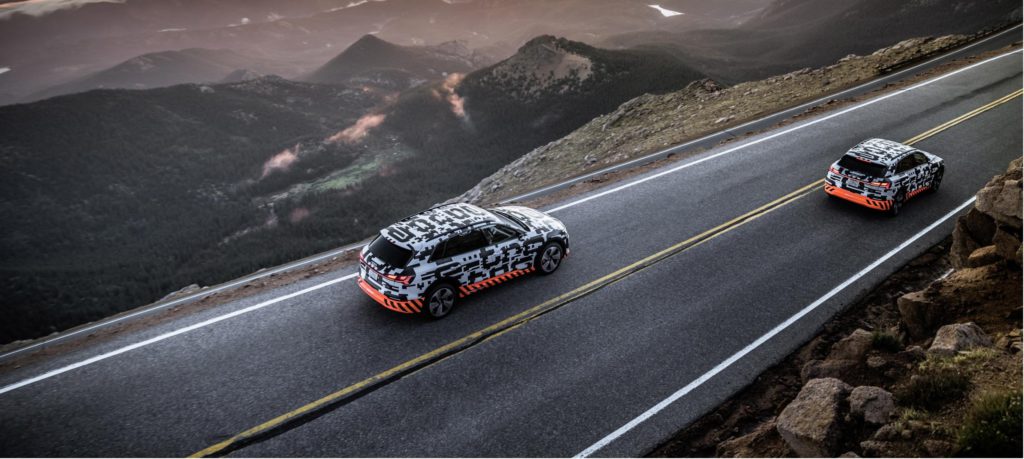Audi wants e-tron at full capacity as BMW drops range extenders
08 October 2018

8 October 2018
German vehicle manufacturer Audi is aiming to fully utilise production capacity for its new e-tron electric SUV before the end of 2018.
The company wants to meet its maximum possible output, as long as its supply chain for new electric vehicle (EV) parts, such as batteries, motors and generators, does not falter. The model started production at Audi’s plant in Brussels, which will add the e-tron Sportback in 2019.
′We believe that at the end of the year, we will reach our maximum capacity,’ Patrick Danau, managing director of Audi Brussels, told journalists at the Paris motor show while declining to quantify what that would be.
One of the challenges facing the plant is the retooling needed for e-tron production. Pre-series production of the EV had to be integrated onto the same high-volume assembly line used to build Audi’s popular A1 small hatchback, which is only offered with internal combustion engines. When the e-tron goes into maximum capacity production, the A1 will be moved to SEAT’s Martorell plant in Spain.
Factory development
To ensure production of Audi’s first EV will run as smooth as possible, the Brussels plant has undergone an upgrade. Buildings have been reinforced, while the factory’s logistics centre has been transformed, and is now the site of production for the 95kWh battery used in the SUV.
In addition to this, the plant’s 3,300 workers had undergone over 200,000 hours of training before the first finished model rolled off the line. A fifth of these workers are on temporary contracts, added simply to prepare for the vehicle.
However, Danau is cautious about the ability to reach full capacity, citing possibilities outside the manufacturer’s control.
′You have to bear in mind not only the company has to ramp up but also the different suppliers,’ he said. ′They have to train their people, start their own new facilities and bring them up to the same speed that we are giving according to the plan, so that is a challenge for all of us.’
Range not extended
While Audi prepares for the e-tron, BMW has announced that it is to end sales of its range-extended i3 model, instead focusing on pure-electric versions of its entry to the EV market.
In a statement seen by British magazine Autocar, BMW says: ′The Range Extender i3 will cease production, and we will only sell the pure-electric version going forward. With the gains in pure-electric range, together with the increasing availability of rapid charging facilities, we believe the customer demand is shifting to a pure-electric model.’
The model will continue to be offered outside of Europe, but on the continent, the company believes that the adoption of fast-charging networks will reduce the need for range extension. The facelifted i3 and i3S are expected to come to market next month.
According to the manufacturer, both models will have a range of up to 190 miles according to WLTP standards, thanks to a new battery featuring 42.4kWh.
The range extended version of the i3 currently makes up around 60% of its global sales of the model, despite a higher price tag than a conventional i3. BMW is therefore not removing the option due to poor sales, but instead wants to ensure that its electric range is not made up of other components.